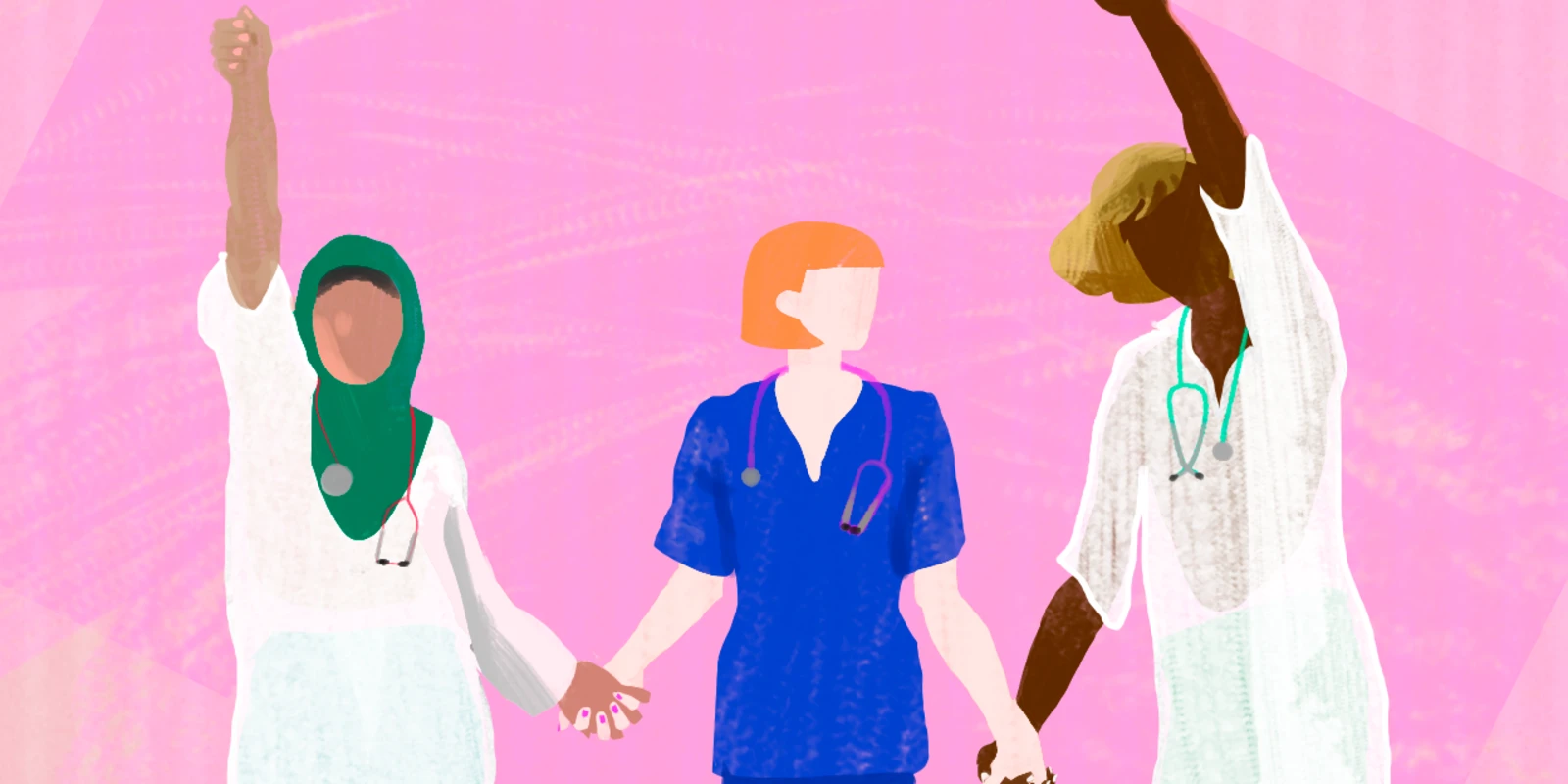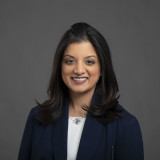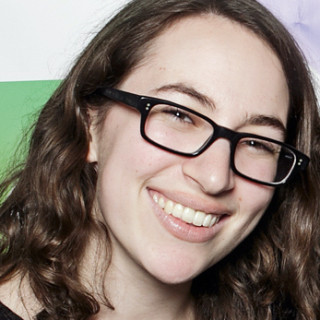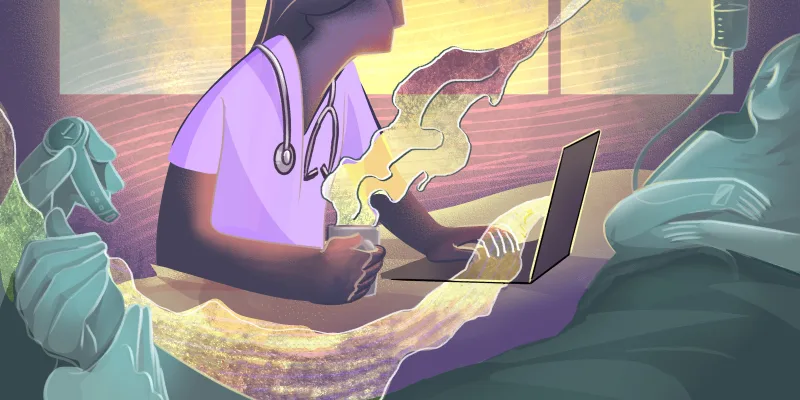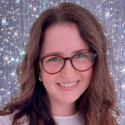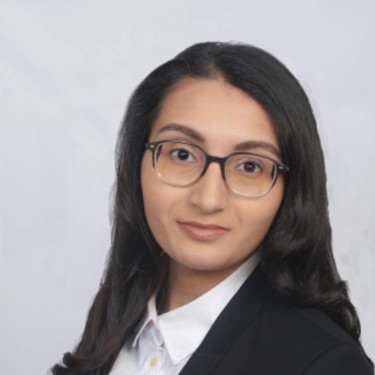
You may have seen me at ASCO 2018 (June 1–5) sporting an orange dot on my badge and staring at the badge of every woman physician who walked by scanning for a fellow orange dot.
Well, there was a method to my madness, and its name is the Hematology & Oncology Women Physician Wolfpack Facebook Group, and our identifying mark for ASCO 2018 was the orange sticker on our badge.
The group was started by Dr. Suzanne Cole in 2015. I joined the group in its infancy, four days after it was started. It is now home to over 1,000 women hematologists and oncologists and is a thriving and robust community of brilliant women.
The group was christened with its new name (the addition of “Wolfpack”) prior to the recent ASCO conference. This occurred after athlete Abby Wambach gave an inspiring commencement address identifying the importance of having a “Wolfpack” or a support system. Her words that encouraged collegiality, using your failures to succeed, taking chances, advice on how to lead, and knowing your support system resonated with many of us in the group.
Thus, we became the Hematology & Oncology Wolfpack Physician Group (HOWPG). This group has impacted my career trajectory, provided innumerable amounts of education, and been a fantastic place for mentorship and support.
This year, the group had a major impact on how I approached the 2018 ASCO conference. It changed the way I maneuvered through, and benefited from, a traditionally overwhelming event. I describe the 5-day conference as similar to the Olympics, with multiple equally important events all taking place simultaneously. There are educational sessions on multiple malignancies, groundbreaking research studies, poster sessions, exhibitors, networking opportunities, and a variety of other events taking place at the same time.
Deciding where to go, or what session to attend can feel like an impossible task. If you attend without a colleague, without a plan, or without looking at the schedule in advance and mapping out your day, you will likely find yourself wandering aimlessly around McCormick Place, unsure of which session is really the most important to attend at that moment. Or, you can spend your time trying not to get lost between the innumerable exhibits and the hundreds of ground breaking posters in the exhibit hall.
This year, for the first time, I felt in control of the conference and the reason was this group.
There were multiple ways this group had a positive impact on my conference experience. Before ASCO 2018 began, some of the HOWPG members created a WhatsApp messaging group. With this I was able to find help in creating a roadmap through the event. Throughout the conference, I was constantly getting updates on what interesting sessions were about to start, as well as the location of other members of the group within the conference halls. I received updates on what was happening in the Women’s Networking Center, and where other HOWPG’s were located, either presenting their research, doing some mentoring, or meeting for coffee.
I chose sessions based on what I had flagged as important before the conference, complemented by the recommendations from the WhatsApp group. I attended talks I may not have otherwise thought to attend and met women from the group at almost every session. When I went to hear these brilliant women talk, I felt like I was listening to a friend, although I had not met the majority of these women in real life.
I was grateful as the group alerted me to the inaugural ASCO Voices session, visually mirroring the ASCO version of a TED talk with its location in the Arie Crowne Theater. This unique event showcased prominent oncologists storytelling, reflecting and sharing personal experiences that reminded many of us why we do what we do.
The session reminded all of us the importance of the human aspects of Oncology, both as a patient and as a physician. We were reminded of the purpose for all the ground-breaking research that was being presented; the patients. The stories also reminded us the importance of taking care of ourselves as physicians. At ASCO Voices, I heard the brilliant Drs. Rachna Shroff and Nina Shah present a powerful piece on the importance of friendship and support in this often emotionally draining field, and in life. I found fellow orange dot members in the audience, and we listened with pride as members of our group were able to describe such an intimate part of their lives in such a beautiful way. Later in the conference I heard Dr. Stephanie Graff and Dr. Julia Close speak on the importance of being confident in who you are and what you are worth. I heard Dr. Andrea Apolo speak on non-immunotherapy bladder cancer treatments. In each of these talks, I felt proud to know (at least virtually) each of these women, and to know that these women had become my mentors, and my colleagues.
Not only is the group a great support system both academically and psychologically, the administrators of the group had collected data from the group and presented a poster at ASCO with evidence supporting the positive impacts of participation on its members. Dr. Miriam Knoll is currently writing a piece for ASCO with ways in which the group positively affected different members ASCO conference experience. The benefits of this group for getting the most out of ASCO, along with many other positive advantages, cannot be overstated.
During ASCO, when I found a fellow orange dot, it felt like meeting a long-lost friend. Now after the conference, we have continued the conversations and discussions on practice changing studies, interesting findings, and groundbreaking research. At ASCO 2018, I finally met my virtual community of academic cheerleaders, mentors and colleagues, and with them, I had the most fulfilling conference experience thus far in my career.

